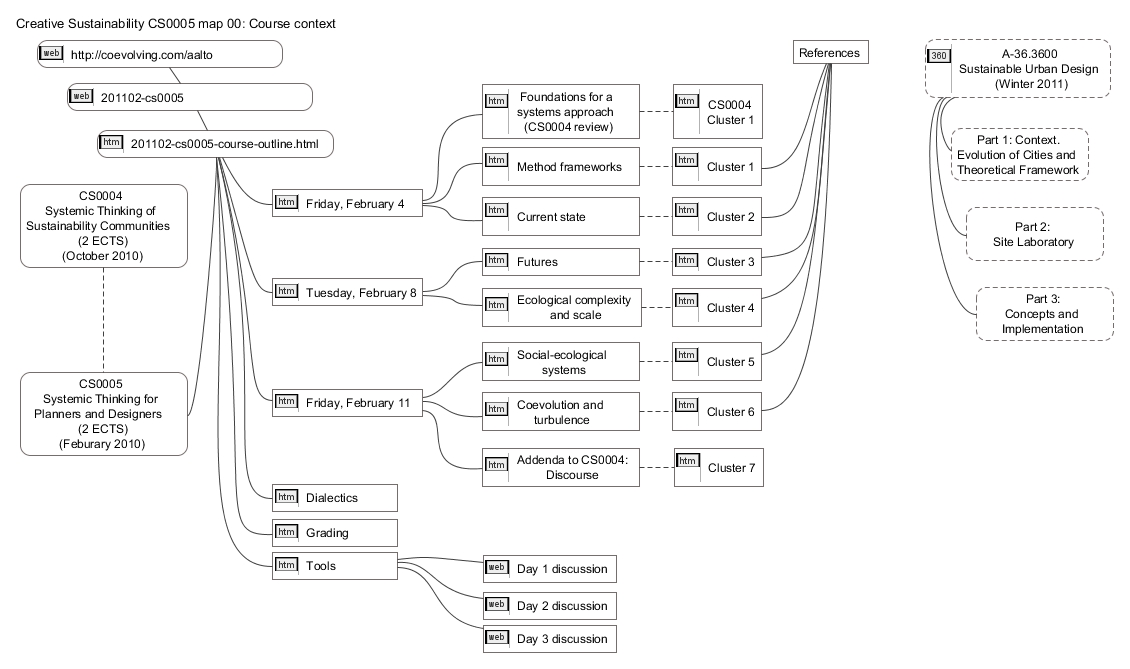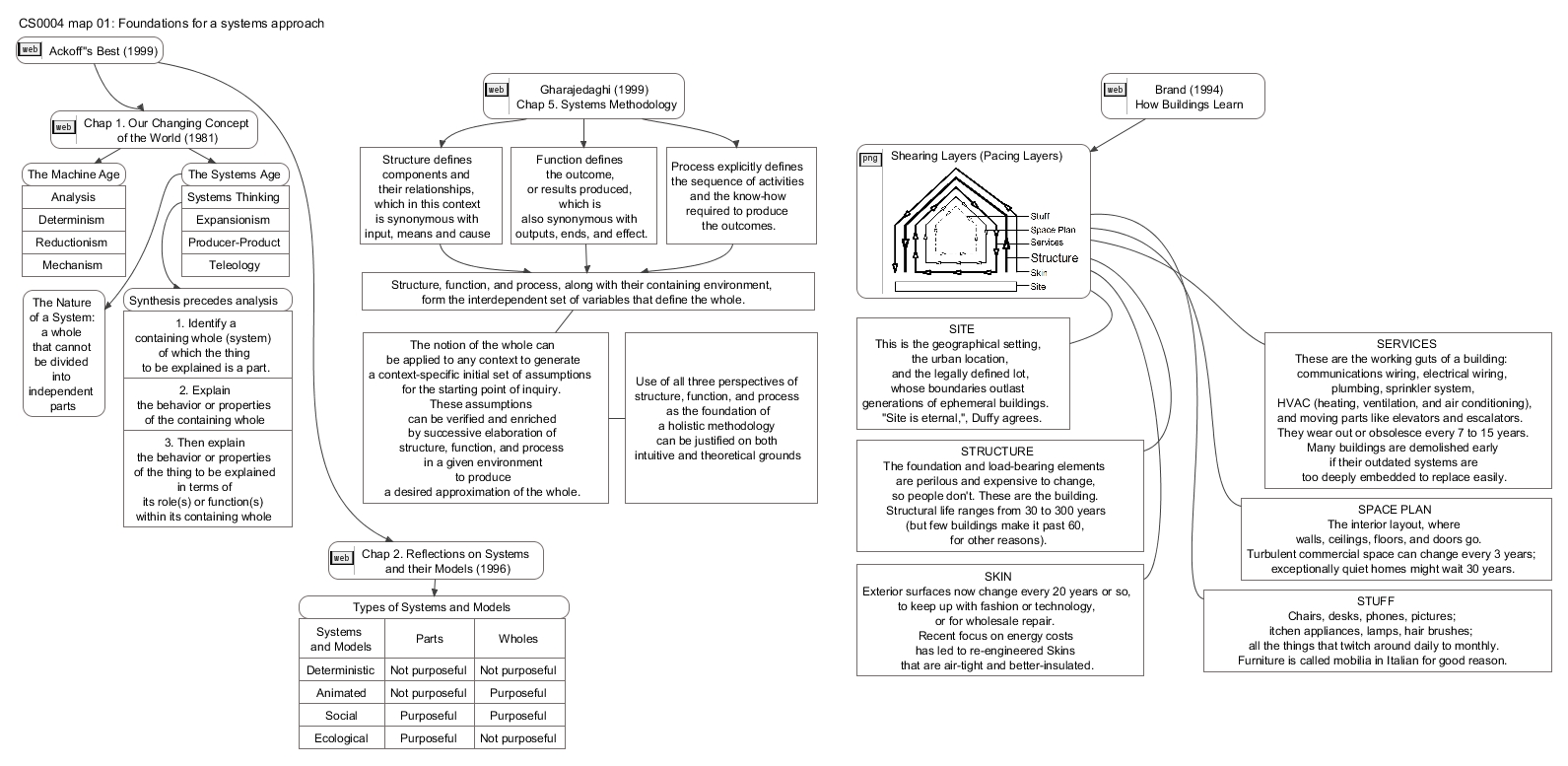Concluding 3 intensive weeks of content immersion, eight student groups created infographics of the ideas that resonated with them from the “Systems Thinking 2” class in the Creative Sustainability program at Aalto University. Each group had been given 3 weeks in advance to prepare content to lead a learning discussion, staking a position on a list of references. As students participated in the intensive sessions, the broader contexts reshaped those positions into a broader appreciation of the breadth of systems thinking. The initial positions and concluding syntheses were:
- 1. Appreciative systems, futures → Into the Future with Systems Thinking
- 2. Boundary, inquiry, perspectives → Systems thinking — synthesis
- 3. Learning categories, postnormal science, ignorance → Systems Thinking from learning and knowledge making perspective
- 4. Dialogue, engagement, intervention → Systems thinking from a dialogue perspective
- 5. Ecosystems, collapse, resilience → What is the purpose of understanding the differentiation between complexity and complicatedness in systems thinking
- 6. Coevolution, turbulence, anticipatory systems → Anticipatory systems, turbulence and coevolution
- 7. Living systems, viable systems, metabolism → How to make STEW (Systems Thinking Endless Wisdom)
- 8. Social-ecological systems, regime shifts → Systems? No problem!
The ending infographics represent a synthesis of the content from the course, each group having traced a different path. To rebalance team sizes, a few individuals migrated to a different group. Some anchored more on the content they had led, while others chose to strengthen linkages to other ideas.
 |
1. Appreciative systems, futures → Into the Future with Systems ThinkingGroup 1 read through a cluster of references on appreciative systems and futures and a map of the basic ideas to produce a presentation slide set. |
Concluding 3 intensive weeks of content immersion, eight student groups created infographics of the ideas that resonated with them from the “Systems Thinking 2” class in the Creative Sustainability program at Aalto University. Each group had been given 3 weeks in advance to prepare content to lead a learning discussion, staking a position on a list of references. As students participated in the intensive sessions, the broader contexts reshaped those positions into a broader appreciation of the breadth of systems thinking. The initial positions and concluding syntheses were:
- 1. Appreciative systems, futures → Into the Future with Systems Thinking
- 2. Boundary, inquiry, perspectives → Systems thinking — synthesis
- 3. Learning categories, postnormal science, ignorance → Systems Thinking from learning and knowledge making perspective
- 4. Dialogue, engagement, intervention → Systems thinking from a dialogue perspective
- 5. Ecosystems, collapse, resilience → What is the purpose of understanding the differentiation between complexity and complicatedness in systems thinking
- 6. Coevolution, turbulence, anticipatory systems → Anticipatory systems, turbulence and coevolution
- 7. Living systems, viable systems, metabolism → How to make STEW (Systems Thinking Endless Wisdom)
- 8. Social-ecological systems, regime shifts → Systems? No problem!
The ending infographics represent a synthesis of the content from the course, each group having traced a different path. To rebalance team sizes, a few individuals migrated to a different group. Some anchored more on the content they had led, while others chose to strengthen linkages to other ideas.
 |
1. Appreciative systems, futures → Into the Future with Systems ThinkingGroup 1 read through a cluster of references on appreciative systems and futures and a map of the basic ideas to produce a presentation slide set. |




